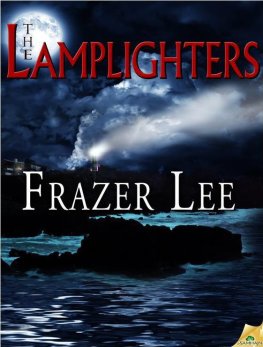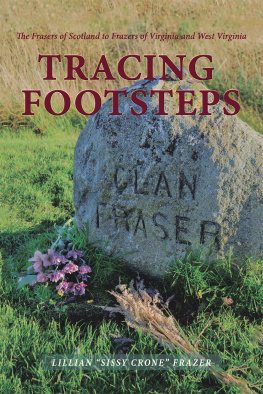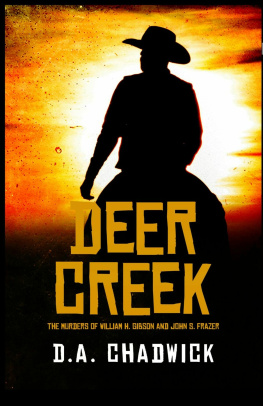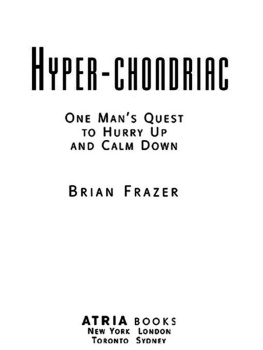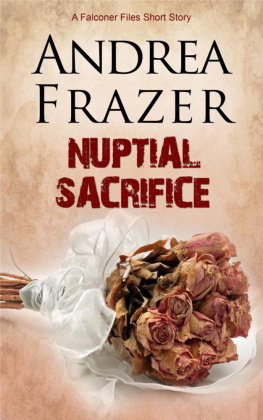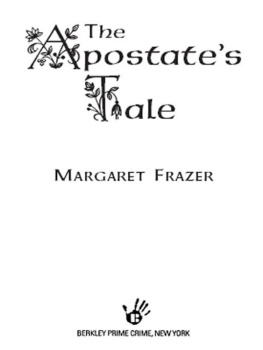Foreword
MY PURPOSE here is to let the reader know what to expect and what he must not expect from this book.
Most of us suffer from an unsatisfied curiosity about the American Indian. Considering how long we have been in contact with the redskins and how much has been written about them, it is surprising that our thirst for understanding has never been slaked. But so it is. For most books about Indians deal only with important matterstreaties, wars, councils, ceremonies, tribal customs; they treat Indians as a tribe, as types, or as museum specimens. These books, having been written by white men, do not take us far into the mind and heart of our red brother. Too often we come away from the reading still feeling that he is something of a mystery, an uncertain quantity. The Indian himself was not a writer. His arts and rituals provided all the artistic expression he craved. And generally your Indian book of memoirs has been written by a ghost ignorant of the language and psychology of his informant and perhaps unconsciously misled by the inventiveness of his interpreter.
And so we may welcome the memoirs of Iron Face or Jack Frazer here recorded by General Sibley, a man who had known the Sioux firsthand for many years both in war and peace, and who was besides well acquainted with his informant.
We may imagine the old half-breed with his thinning gray hair and ill-fitting white mans clothes sitting bolt upright and uncomfortable on a chair in Sibleys quarters, talking now in the Dakota tongue and again in frontier English, and all the while corroborating his words with slight unconscious gestures of the sign language. It was an intimate association between men who understood each other.
True, the Black Hawk War and the Minnesota Massacre figure importantly in Jacks story, but these events, like others in his narrative, are of interest chiefly because through them he takes us intimately into his confidence, into the inner life and motives of an Indian. He tells us what he thought and how and why. We learn to understand his attitudes, his values, his moral standards and qualities, his loyalties, fears, and hopes. Here we find bits of that most significant portion of a good mans life which consists of his little nameless acts of kindness and of love. At the same time we learn much of Indian manners and of the driving forces which motivated his companions. He does not hesitate to tell us of his follies, blunders, and mistakes, even those which in his later years he could only regard as crimes. In youth, following the custom of his red relatives, Jack could be cruel and brutal; yet the overall picture is that of a man of humane feelings and great good nature with a lively sense of humor and considerable intelligence.
No very good shot, and not by his own rating especially robust or athletic, Iron Face was nonetheless a brave and even desperate fighter, and frequently sought opportunity to display his strength and courage. He declares that once, to win a race and a bet from a horseman, he willingly ran eighty miles cross country. To show his independence he boldly walked into the council lodge and shot down the chiefs dogs under his very nose. He would chase a bear all day, or track down his prey through a blizzard.
Impulsive, generous, competitive, restive under censure, but adept at saving his own face, he was also a prankster with an Indian love of practical jokes. Among the Sioux the relationship between uncle and nephew was very intimate and familiar, and the reader will find the jokes played upon each other by Jack and Wacouta thoroughly amusing.
Underlying the whole story is Jacks gnawing problemthe half-breeds tragedy. Brushed off by his white fathers people, for whose superior culture he yearns, Jack turns inevitably to his mothers tribe, who accept him as one of their own kin, only to show their deep distrust of his white blood by trying to kill him in the Minnesota Massacre. Iron Face lived through that time when the advancing frontier was turning the Indian hunters paradise into the pioneer farmers hell. He grew up with the country, and we are made to realize the deep shame the old man felt at having killed women in his wild youth.
We have here, then, an interesting human document rare of its kind. True, the narrative does not take us so far into the heart of Iron Face as we could wish. The book is not always so explicit as we might desire. This may be because, in talking to an old friend like Sibley, Iron Face would leave some things unsaid, feeling sure that they would be taken for granted.
The reader, of course, must not expect qualities in this narrative which in the nature of things cannot be there. This is a period piece, and though clearly and directly written, is not a fine polished book in the modern sense. Inevitably it is sometimes repetitious. It exhibits some clumsiness, some lack of form. But all this seems proof of the honesty of the two men who composed it. Their restrained story has the ring of truth, when it might easily have been wrenched into a sensational yarn for the newspapers. I am not at all disturbed by the lack of perfect form and skilled technique here. We are lucky, I think, to have this story in any form.
Books may be toys, tools, treasures. For its rarity in its field this book may be considered something of a treasure; certainly it is amusing and readable enough to be called a toy, an enjoyable piece of entertainment for the intelligent reader; yet perhaps its chief service is as a tool to help us understand a kind of life now gone forever.
I would like to illustrate my feeling about Jacks narrative by quoting some pertinent lines taken from The Earthly Paradise by William Morris.
Folk say, a wizard to a northern king
At Christmas-tide such wondrous things did show,
That through one window men beheld the spring,
And through another saw the summer glow,
And through a third the fruited vines a-row,
While still, unheard, but in its wonted way,
Piped the drear wind of that December day.
The praise of these memoirs is that they open just such a magic window. Here and there the glass is a little warped or clouded; the window frame cuts part of the picture out. But there is much to see and ponder. The vision will reward the effort.
STANLEY VESTAL




